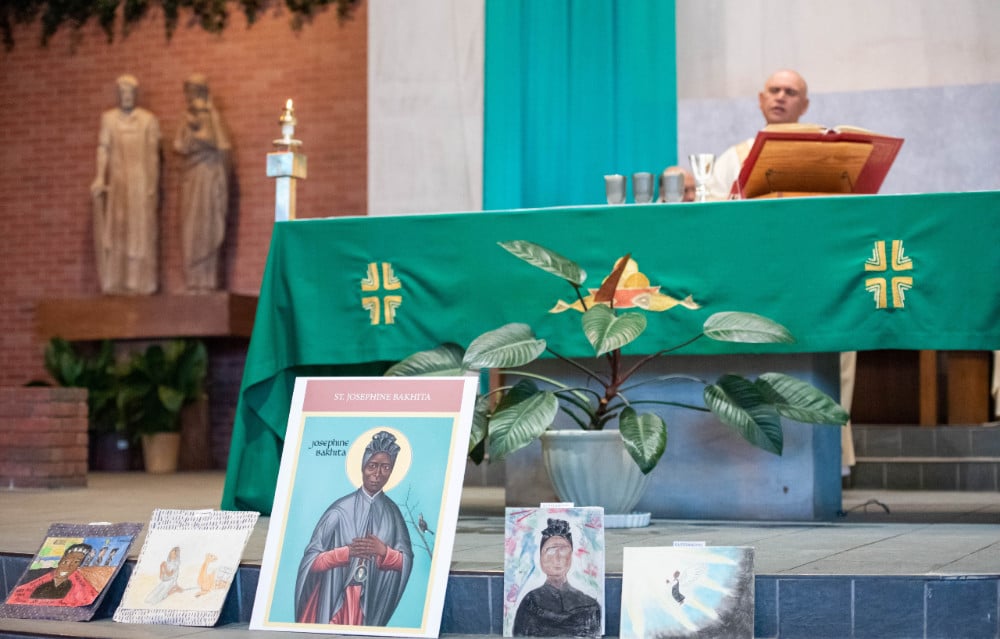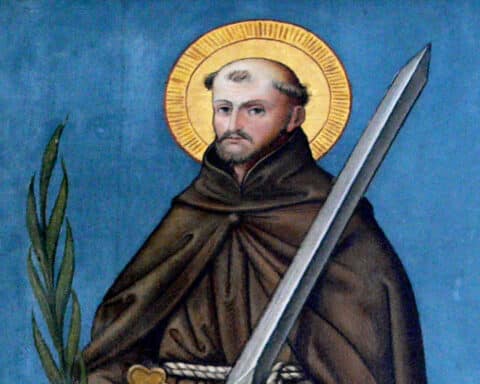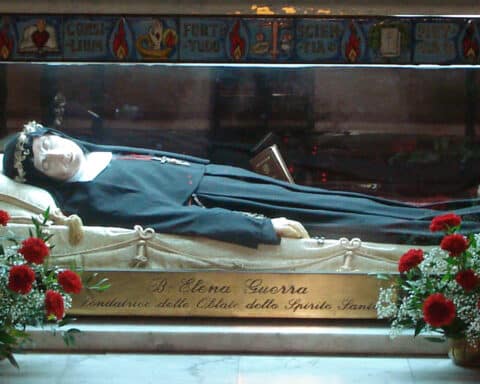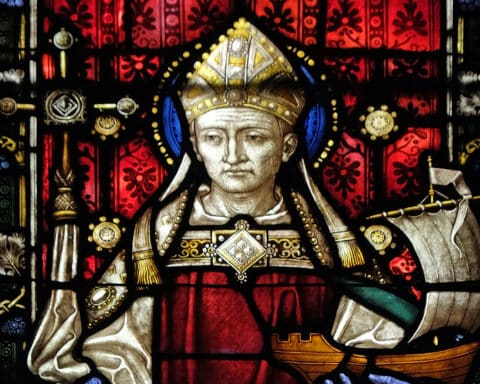
— Name, location withheld
Answer: Feasts and the “rank” they have are listed in a book called the “ordo.” Generally speaking, they come in four ranks: solemnities, feasts, obligatory memorials and optional memorials. The first three must be celebrated by the priest. The last category is, as its name suggests, optional. There are also days on the Church’s calendar when no saint is designated to be celebrated. Hence, on days of optional memorials or where no saint is designated, the priest has several options. He can celebrate the weekday option and wear vestments appropriate to the season — green for Ordinary time, white for Christmas and Easter seasons, and purple for Advent or Lent. The priest can also celebrate a votive Mass for an intention or a saint, such as world peace, vocations, Mary, and so forth.
There are other variations in the Church’s calendar. While many solemnities and feasts are common to the universal Church, there are some that are unique to certain nations or regions. This is even more the case with memorials and optional memorials.
As for your situation, it is true that priests exercise options differently. But this is their privilege, since they are to preside over the liturgy. The choice of an optional memorial may affect the readings that are proclaimed as well as the layout of the missal, the choice of a preface, etc. And so there are effects beyond the recognition of the saint in question. Further, some priests are very knowledgeable about the lives of the saints, others less so. Perhaps, if the priest in question knows of your devotion to a saint, he would be more willing to celebrate it. I doubt any snub was intended to the saint or to those devoted to a saint.
Second death
Question: What is meant by “the second death?” I thought we only die once and then there is the judgment. Please explain.
— Johnathan Deal, Phoenix
Answer: The second death is obviously distinguished from the first death. The first death is common to us all. It is the death of our bodies that came through sin. Genesis says, “But from the tree of the knowledge of good and evil you shall not eat, for … you will surely die”
“You are free to eat from any of the trees of the garden except the tree of knowledge of good and evil. … [W]hen you eat from it you shall die” (2:16-17). Romans also says, “Therefore, just as through one person sin entered the world, and through sin, death, and thus death came to all” (Rom 5:12). And yet again, “For the wages of sin is death” (Rom 6:23) This first death comes to us all, and, as Christians, we are told not to fear it, since by dying Christ destroyed our death and by rising restored our life. We read in Scripture, “For we know that if our earthly dwelling, a tent, should be destroyed, we have a building from God, a dwelling not made with hands, eternal in heaven” (2 Cor 5:1). Death is not a doorway, not a dead end for those who remain faithful. Death ushers us by God’s grace into the life that is true life; to joys unspeakable and glories untold.
The second death is for those who do not inherit this new life because they die in unrepented mortal sin. As such they are locked into their proud rejection of God’s love and exclude themselves from the kingdom of life. This is a kind of second death since they do not come to the life that is true life.
The phrase “the second death” comes from the Book of Revelation where we read: “Then Death and Hades were thrown into the pool of fire. (This pool of fire is the second death.) Anyone whose name was not found written in the book of life was thrown into the pool of fire” (20:14-15). And again: “But as for cowards, the unfaithful, the depraved, murderers, the unchaste, sorcerers, idol-worshipers, and deceivers of every sort, their lot is in the burning pool of fire and sulfur, which is the second death” (Rev 21:8).
We all die once. But those who reject the offer of the kingdom of life die twice. The first death ought not to be feared by the faithful. But the second death is to be soberly feared and zealously avoided.
Msgr. Charles Pope is the pastor of Holy Comforter-St. Cyprian in Washington, D.C., and writes for the Archdiocese of Washington, D.C. at blog.adw.org. Send questions to msgrpope@osv.com.





